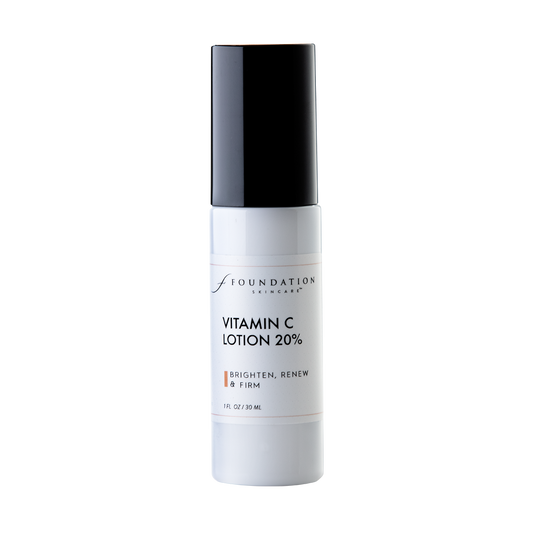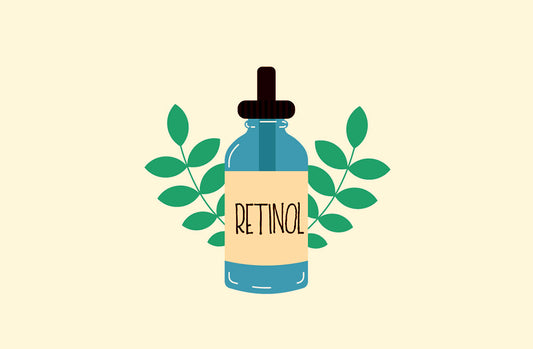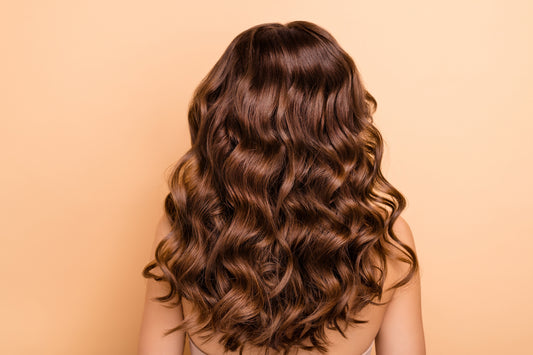There are plenty of frequently touted skincare “facts” floating around the internet – but what’s actually true? We’re setting the record straight and debunking 8 of the most common anti-aging skincare myths.
Myth #1: Expensive Skincare Products Are Better
False. This is one of the biggest anti-aging myths out there, but thankfully, it’s not true at all. Despite what some marketing campaigns may tell you, high-quality, effective skincare doesn’t have to cost an arm and a leg. The key is finding expertly crafted products made with science-backed ingredients. Foundation Skincare was created on the basis that all customers should have access to fairly priced formulas made with clinically proven ingredients (and without untested “fad” ingredients) that can help you achieve your skincare goals.
Myth #2: Wrinkles are the First Sign of Aging
False. Fine lines and wrinkles may be what first comes to mind when you think of signs of aging. However, there are other signs that often visibly manifest on the skin before wrinkles start to form – such as age spots. These dark spots are caused by chronic UV exposure, which speeds up the production of melanin (the pigment responsible for skin color).1
While you can’t turn back time and force your younger self to implement better sun protection practices, there are steps you can take now to fade current discoloration and prevent future spots from forming. In addition to wearing sunscreen daily (more on that below), you can take an internal approach to tackling dark spots with the Foundation Skincare Spectrum Supplement. This daily supplement contains vitamins, antioxidants, and other ingredients that help renew and strengthen the skin while defending against the damaging effects of environmental aggressors, including the sun.
Additionally, there are active ingredients that can be used topically to brighten the complexion and fade the appearance of current dark spots. When used in high concentrations, azelaic acid has been shown to lighten dark spots by blocking the enzyme tyrosinase, which plays a role in melanin production.22 It’s the star ingredient of the Foundation Skincare Azelaic Acid Cream, which has a 14% concentration of azelaic acid. This is the highest percentage available over-the-counter.
Myth #3: Sunscreen Should Only Be Worn In The Sun
False. Up to 80% of UV rays can penetrate through clouds, which means you need to be wearing (and reapplying) sunscreen every single day – rain or shine.3 These rays can damage the skin and lead to premature signs of aging, including dark spots, fine lines, and wrinkles.
To maximize your sun protection routine, we recommend applying a vitamin C solution (like the Foundation Skincare Vitamin C Lotion) on a daily basis. Vitamin C is an antioxidant that is able to defend the skin against harmful free radicals from the sun, pollution, and other environmental aggressors.4 This multi-tasking skincare ingredient also helps counteract damage from the sun. It stimulates collagen production to improve firmness and soften fine lines and wrinkles, and brightens the complexion.
Myth #4: Natural / Organic Products Are Better For the Skin
False. The terms “natural” and “organic” are thrown around a lot in skincare, but it’s important to note that neither are regulated when it comes to the cosmetics industry. With this in mind, a product isn’t better or safer for the skin just because it is marketed as being “natural”. What’s important is finding formulas made with scientifically-proven ingredients that are deemed safe for the skin – regardless of whether they are naturally-derived or synthetically created.
Vitamin C Lotion 20%
Myth #5: Only Older Women/Men Need Anti-Aging Products
False. Prevention is much easier than reversal. By starting your anti-aging routine when you’re younger, you’ll make it much easier for your future self to manage signs of aging. While we can’t completely stop our skin from getting older, there’s a lot we can do to slow down the development of signs of aging. This includes using science-proven anti-aging ingredients like vitamin C and retinol, and of course, wearing sunscreen on a daily basis.
Myth #6: You Will See Anti-Aging Results Immediately
False. Anti-aging products require time and consistency to work, so don’t expect to see results overnight. In general, you need to give a new product at least 6 to 12 weeks before you start seeing results. It can take even longer to see the full benefits of the product. Once you do achieve the results you desire, it’s important to continue consistently using your anti-aging products to maintain those results.
Myth #7: If It Burns or Stings, It Means the Product is Working
False. It is true that some anti-aging products might cause a light stinging sensation when first applied to the skin. This can be especially true when first adding a new active ingredient to your routine. However, a product certainly doesn’t have to sting the skin to work, and too much discomfort can mean you're negatively impacting the skin’s barrier.
Any slight stinging sensation shouldn’t last longer than a couple minutes, or cause any major discomfort. If you experience more intense burning or stinging, you should either use the product less frequently to allow your skin to more gradually adjust to the ingredient, or cut out the product entirely, depending on the severity.
If you’re unsure whether the stinging you're experiencing is normal, you can contact us to discuss further.
Myth #8: You Should Use Retinol Everyday For It To Work
False. Retinol is a high-powered skincare ingredient, and some skin types won’t be able to handle using it on a daily basis – especially when using super concentrated formulas. Our Foundation Skincare Night Renewal Cream is formulated with Granactive Retinoid, a highly effective form of retinol that is generally considered gentle enough to use nightly. However, some may still find that using it less frequently works best for their skin.
To minimize the risk of irritation and maintain skin comfort while still getting the benefits of retinol, you may choose to lessen your use of retinol around two to three nights per week, depending on your skin’s tolerance.
Anti-Aging Myths Debunked
It’s important that you don’t fall prey to myths circulating around online or in real life – no matter how often you may hear them. By following the science and paying attention to what works best for your skin, you can create a safe and effective anti-aging skincare regime.





